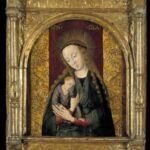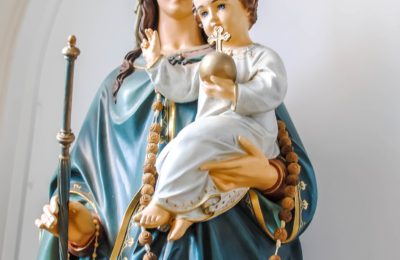Today, June the thirteenth, is the feast of St. Anthony of Padua, Doctor of the Church, who is also known as the hammer of the heretics. Five years ago, we wrote about his teaching on the perpetual virginity of the Blessed Virgin Mary. I am posting this writing again, today, as it is such a delight to learn about the Queen of Heaven; and one never tires of reading such words from a Doctor of the Church, our Catholic ancestor. This post begins now:
The Franciscan priest and saint, Anthony of Padua, preached and wrote about many of the characteristics of Our Lady, but one that he spoke of that is often questioned, and/or misunderstood, is that of her perpetual virginity. The Franciscan Friars of the Immaculate say regarding St. Anthony’s teachings on this topic:
The holy doctor (St. Anthony, added by SCF) frequently spoke on the perpetual virginity of Mary, a doctrine defined by the Church at the Lateran Council in 647. Our saint capsulizes this teaching concisely: “She remained a Virgin before, during, and after the birth (of Christ).” In one sermon, after likening St. Ann to an “olive tree, from which came the brilliant blossom… the blessed Mary,” he says, “Symbolically it could be said that She (Mary) was ‘green like an olive’ in the conception and birth of the Savior, for She remained a virgin before and after His birth.” Regarding our Lady’s virginity during birth, he gives a fervent explanation: “Christ’s birth from the Virgin knows no equal among women, but is mirrored in nature. Someone may ask how the Virgin gave birth to the Savior. She begot Him as a blossom emanates perfume. The blossom of the vine remains incorrupt after it has given off its perfume, and so likewise, faith leads us to believe that the modesty of the Virgin—the modesty with which She gave birth the Savior—was not violated. What else is the flower of virginity if not a sweet perfume?” Furthermore, “just as a lily does not lose any of its beauty in emitting its sweet fragrance, so too did our Lady preserve Her virginity in giving birth to the Savior.” source
This is beautiful to read.
Hail Mary, the Fairest of Lilies, perpetual Virgin and Mother!
Happy feast of St. Anthony of Padua, 2023!
•SCF






